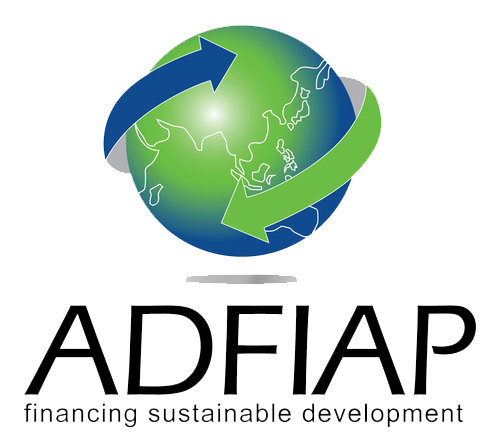The ADFIAP Board approved during its meeting in Bangkok recently the adoption of the “ADFIAP Policy Statement on Climate Change” which read as follows:
“As an international community of development finance institutions, ADFIAP takes a long view of the importance and impact of the climate change issue, as this is not only a global phenomenon as it is local; an institutional concern as it is personal. Climate change and its effects is the responsibility of all to tackle now and in the future.
As development organizations, DFIs have a natural mandate and catalytic role to play in climate change initiatives. To deal with climate change, it is necessary to work at two levels: to seek for the reduction in greenhouse gas emissions and to be fully engaged in global efforts to stem the rate of climate change; and within the realities of current climate change situations, to reduce its adverse effects on ecosystems and their biodiversity.
As financial intermediaries, DFIs are in a strategic position to help mitigate climate change’s impact, not only as a source of funds of projects that may contribute to the degradation of the environment but also as an advocate of it to project proponents themselves in the course of doing their businesses. These actions also need to be coordinated with programs to address other urgent priorities, such as reducing poverty, improving education and public health, investing in water and sanitation projects, and raising general living standards. Reliable, renewable and affordable supplies of energy are also essential in meeting these challenges.
Notwithstanding that government policies as well as legislation and regulation on climate change are presently under consideration in members’ respective countries, ADFIAP supports an open and constructive dialogue with like-minded development organizations on the principles that should shape its climate change policy. To this end, and as a starting point, ADFIAP members agree on the following policy statements on climate change:
1. Scaling up awareness and education
* Continuously advocate for sustainable development issues, not only because this is ADFIAP’s avowed mission but also by working to inspire and encourage others to the value of sustainability through our members, partners and stakeholders in the ADFIAP network.
* Elevate to the next higher level the awareness of environmental issues initiated in ADFIAP’s EU-funded environmental governance standards project among members’ officers and staff and encourage them to observe best practices, for example, by integrating environmental management systems into operational transactions and environmental risk scan into their lending decisions.
* Incorporate new and innovative sustainability-oriented ideas and trends such as sustainable consumption and production into ADFIAP’s environmental training programs as well as into its other knowledge resources, i.e., publications and websites
2. Taking Action and Reporting Progress
* Take a leading position in promoting greenhouse gas emissions reduction as a priority agenda and in developing reporting standards in this regard. ADFIAP believes that an improved registry for reporting emissions and documenting reductions would stimulate progress on climate change initiatives in the DFI sector.
* Endeavor to encourage members to look into providing more investments to projects that reduce emissions and improve energy efficiency and to encourage them to provide public recognition to project proponents that have reduced their carbon footprints. Both these actions are aimed at motivating the project proponents to be more responsive and sensitive to climate change issues.
* Promote to develop and implement within the membership practical conservation projects that contribute to decreasing the impacts of climate change, e.g., tree planting and habitat restoration that enhances species movement and thus helping them to adopt to climate change.
3. Working with Others
* Seek partnerships and engage with same-purposed institutions that also promote environmentally-responsible practices.
* Cooperate also with those working on research, conservation and environmental projects related to mitigating climate change.”
